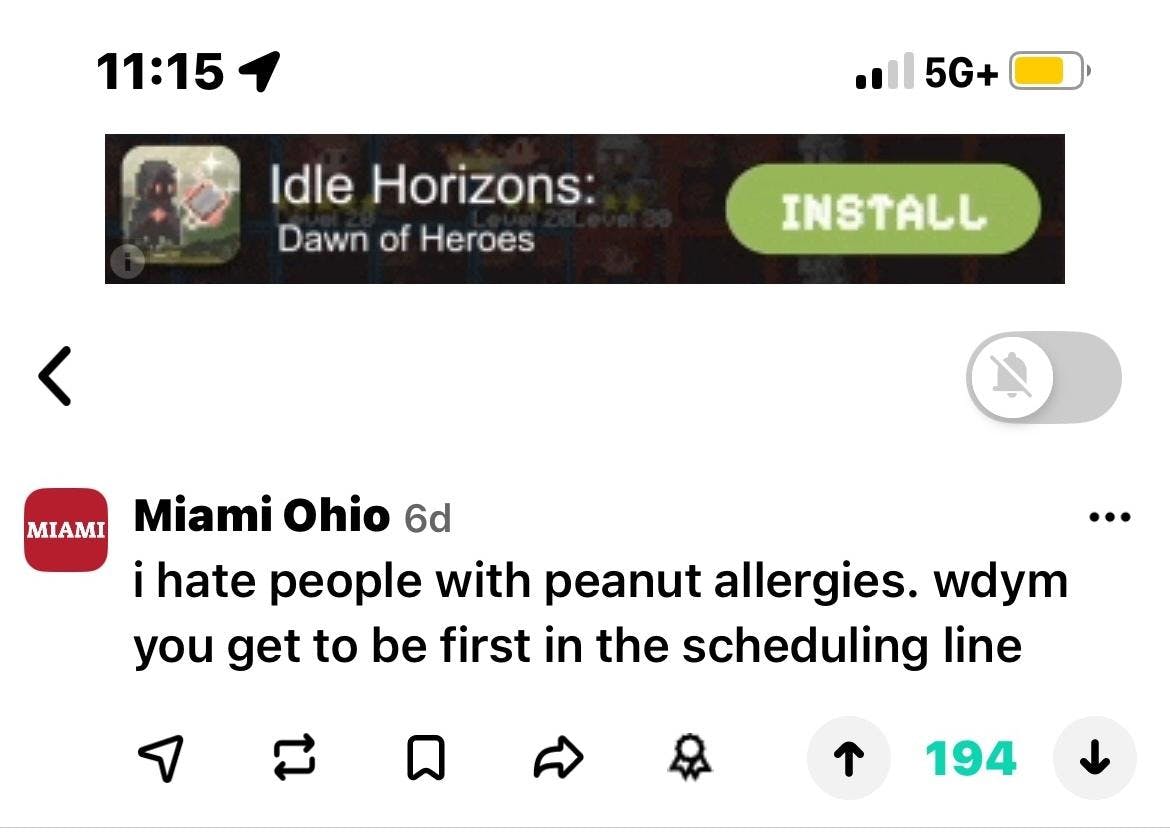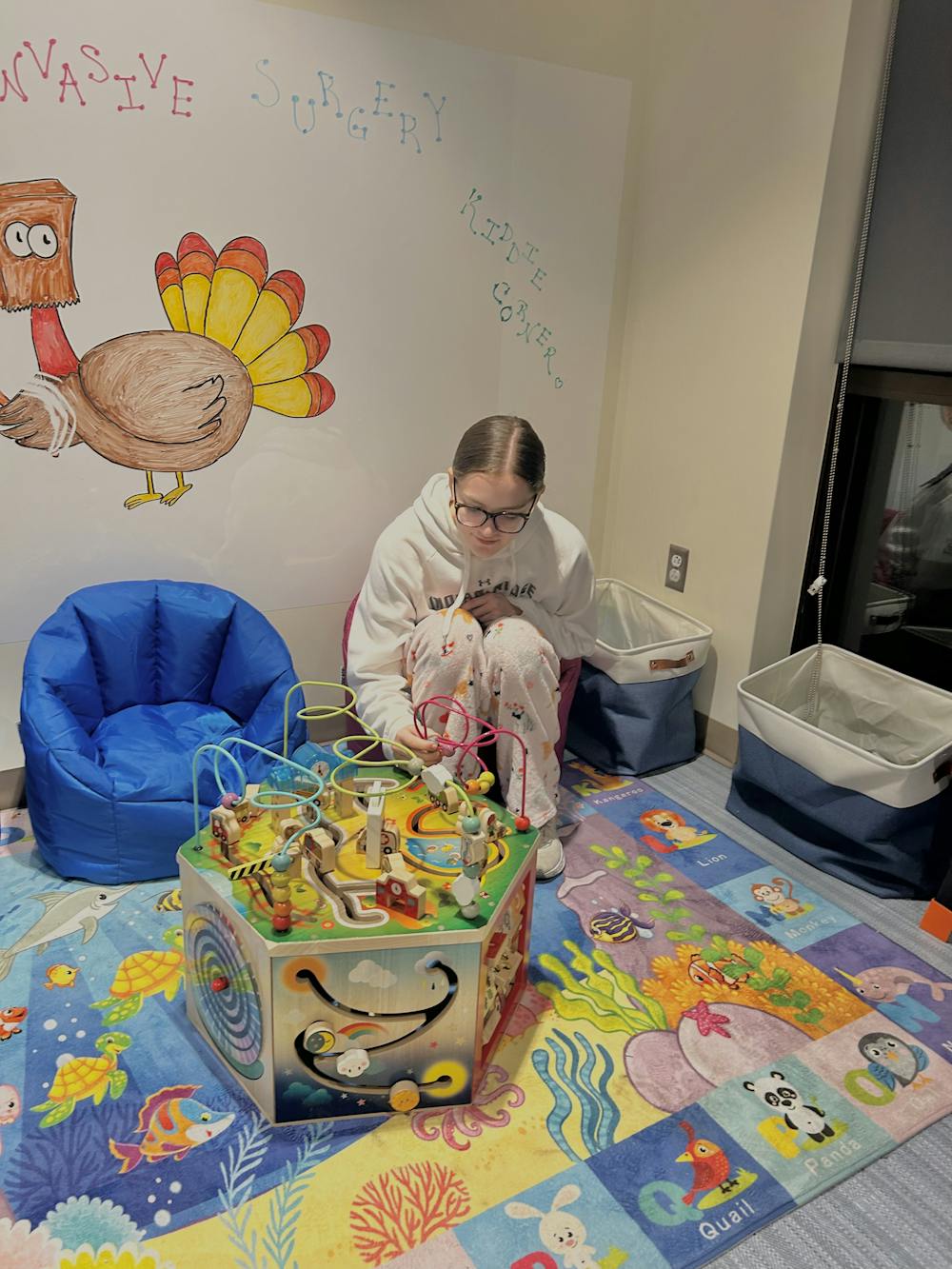Being disabled at 21 is hard enough, but the nasty stares and judgment from complete strangers are, at times, worse than the actual struggles I experience.
I pull into a busy Walmart parking lot, looking to run inside quickly and get a few items I need. I already don’t feel great and know a walk around the large store won’t help, so I take my chances and park in one of the furthest open handicap spots.
While parked, I already feel guilty, thoughts racing through my head of, “What if someone else needs it more than I do?”
An older man in a truck stares at me with a look of disgust as I exit my car.
He doesn’t have to say anything for me to perceive my unwelcomeness in a spot I deserve in every way. The look he’s given me is enough to make me question my choice and feel judged for the handicap tag hanging on my mirror as I walk, seemingly without trouble, into the store.
I’ve been sick for as long as I can remember, in miraculously different ways throughout 13 of my 21 years on this Earth. I sat through what feels like a lifetime of doctors telling me:
“Well, you look fine, so I’m not quite sure what to do.”
“I have no idea what’s wrong with you.”
And best of all, “You don’t quite meet the criteria for this diagnosis, so I can’t do anything to help you.”
I’ve always been sick, but not sick enough to be treated properly or seen as truly unwell.
I was diagnosed with Postural Orthostatic Tachycardia Syndrome (POTS) at 15, and I have watched the chronic condition get more and more media attention over the years.
Through my years of suffering, I’ve endured many emotions about my identity as a girl with a chronic illness, and I’m happy to finally say I’ve reached the point of unapologetic acceptance.
Enjoy what you're reading?
Signup for our newsletter
With so many more young girls being diagnosed, I’ve decided it’s best to speak out about my experiences in any way I can and teach others that illness doesn’t have to be a sign of weakness. But just because I don’t feel weak because of my diagnosis, doesn’t mean other people don’t see me as such.
This year, after being much more open about my disability, I found many of my fellow students were shocked by my ability to function and “seem fine.” I’m not in a wheelchair, I don’t have a service dog and I don’t use any assistive devices, so it’s impossible for me to be seen as disabled to most.
The same theme continues: I’m disabled, but not enough to get extra privileges, park in special spots or even say the words “I’m disabled.”
Over my years at Miami University, I’ve watched tolerantly as our student body makes fun of those affiliated with Student Disability Services, mocking their need for extra testing time or early registration dates.

We, as students, are not responsible for judging others’ abilities based on their appearance or how well they can seemingly perform academically. The truth is, you never know what is going on behind the scenes, so why judge based on the small fraction you do see?
Even some professors are guilty of the same generalizations. My intellect really has nothing to do with my body’s ability to function properly, and I’m tired of the assumption that I’m lazy or just not smart enough when I need to use my accommodations.
Students with disabilities make up a small but important percentage of Miami students, and it’s time that the university as a whole, but especially our fellow students, start treating us with the respect and benefit of the doubt that we deserve.
I know I’m not the only one who’s been through things like this, and if you’ve had similar experiences, you are not alone in any sense. The only way to increase understanding of our situation is to speak out about it and address the wrongdoings so it can be changed for future students.
It’s irresponsible of our student body and university to disregard the real ordeals of many of our peers, and we owe it to them and ourselves to improve the experience of future generations of students.
Elisa Rosenthal is a junior Spanish education major with a passion for writing and storytelling. She’s originally from Georgia and writes sports for The Student, honoring a long family love for college sports.




